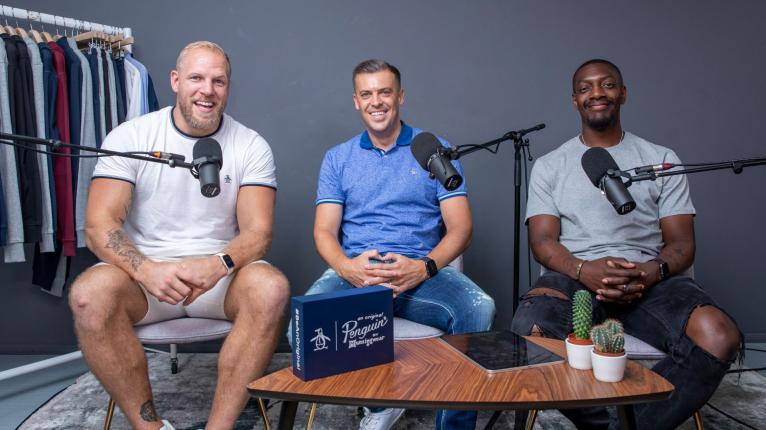James Haskell's identity crisis: 'They don't know they're horrible'

Former England flanker James Haskell has opened up about his struggles with mental health and how a lack of self-confidence has plagued him since his school days.
Haskell – who was speaking about mental health on the Under the Surface podcast – said he felt that he had lost his identity when he retired from the game in 2019.
The 6’4, 19 stone flanker has carved out a career as DJ, podcast host, author and TV personality, but reveals that losing his identity when he retired from professional rugby was like pulling ‘the pin out of a grenade’.
“My mental health has been tested more in retirement, where you’ve lost your identity. I was James Haskell the rugby player, was how I was defined. That was on Saturday, the Sunday I retired and on Monday I was James Haskell – who the hell is James Haskell? He’s been at boarding school from the age of 10-18, been a professional rugby player from 18-35, around men his whole career, had a routine his whole career.
“It’s like an animal that you can’t release back into the wild, like a lion that just sits there waiting for dinner – you’re definitely going to get eaten in the real world.
“That’s the hardest – losing that identity, and what are you going to do? That’s why you see so many players struggle with mental health post-retirement. They probably had it through their career, but it sends you over the cliff. You don’t have the structure, the routine, the chance to switch off. Take all of that away and leave them on their own. It’s taking the pin out of the grenade and throwing it into your life, and waiting to see how that blows up.”
Haskell says that he’s been working with a psychologist since his teens and that behind his brash and outgoing public persona, lies someone riddled with insecurities.
“I worked very early on with a psychologist from the age of 17 because, contrary to the person that you may see on camera, I wasn’t always the most confident. I didn’t believe I was very good at rugby, and I still have that now – where I can only dwell on the negatives of what I’ve done as opposed to being wholly confident.
“If you put your hand up in the changing room and said how many people are seeing a psychologist, I would have been the only one.”
The flanker also likens players going on online forums and social media platforms as a form of self-harm.
“I went on one of those forums after my debut and it was like ‘he’s rubbish’, ‘he shouldn’t play again’. Going on is like a form of self-harm. I’ve looked into a lot of it as to why people do it and why social media is so dangerous – it’s basically about reassurance. It’s such a dangerous game, but you’re looking for affirmation. It’s the same as when you say something rude to your mates, and then you nudge them to say ‘alright mate’, to give them a bit of reassurance. You’re looking for that humanity, of is everything okay?
“You suddenly give value to people that you’ve never met. I’ve never thought about going to an online newspaper, registering for an account to comment and then going in and insulting everybody on there. You have to be a certain type of person. When you look at the psychology, they are all vying for some sort of mob mentality of horrible people. But the weird thing is that they don’t know they’re horrible; because that’s their sphere.”
The 77-cap Test loose forward believes people need to prioritise their mental health in the way they do their physical health.
“If I told you that you could run faster by buying these new trainers; you’d go and buy them. If I told you that you’d look slimmer for wearing this shirt of taking this pill; you would do it in a heartbeat. But the mind is the most powerful tool that you have that controls everything you do, from how you sleep, how you talk to people, your inner voice – it’s something that has to be managed. Like your diet. Like your physical health. It’s part and parcel of it. It’s the last thing we leave, yet it’s the most important thing that you have.
“If I told you that I could change the way you felt at work, the way you dealt with your own personal relationships, the way you dealt with sadness, the way you dealt with happiness, make you more successful, make you sleep better and to perform better in every area of life – but, you have to talk to someone who would give you some tools to change it, most people wouldn’t do it. Because most people don’t understand it.

“Mental health for me is sometimes wrongly branded. It’s about talking – but with action. Talk with no action gets you nowhere, it doesn’t make a difference. It’s asking ‘where do I get the tools to take action’ – and you’re going to have to shop around, the same way you go to different clothes shops and the fit might not be right. You have to find the right therapist that you click with, and that you’re prepared to be vulnerable with.”
Haskell was speaking on the Original Penguin X Campaign Against Living Miserably Under The Surface podcast











































































